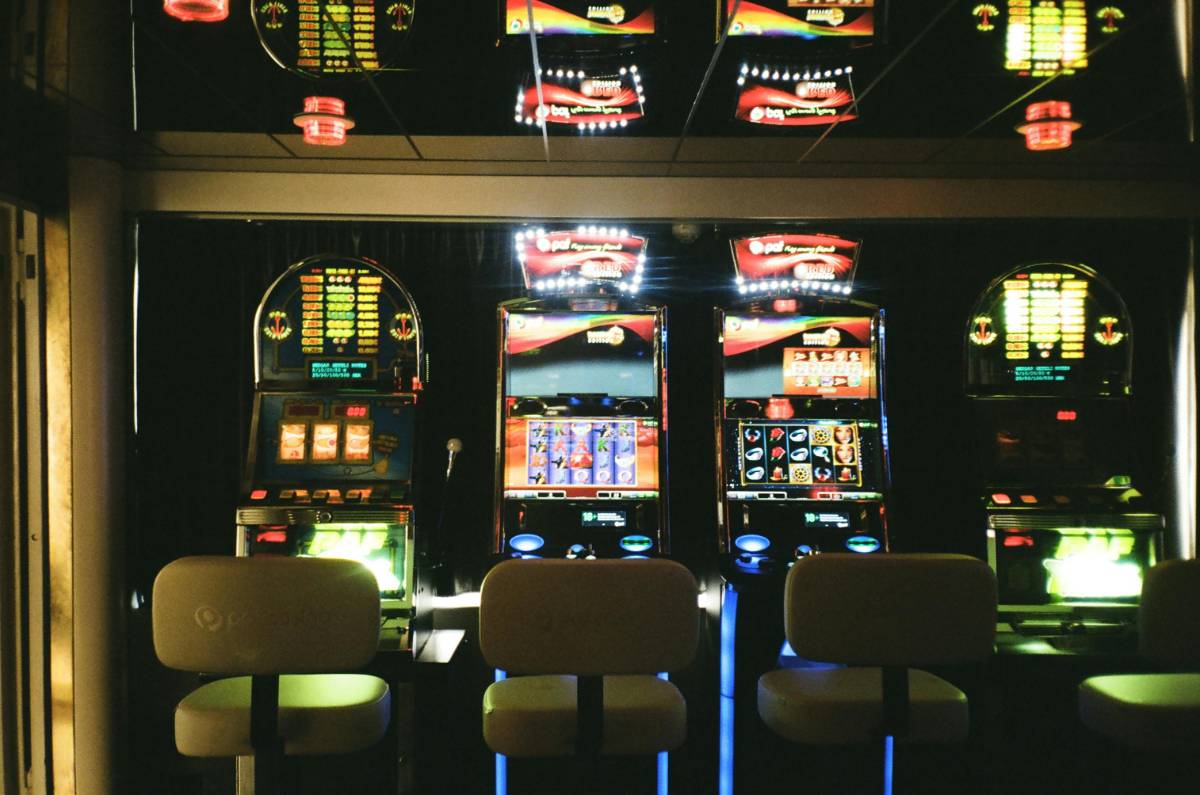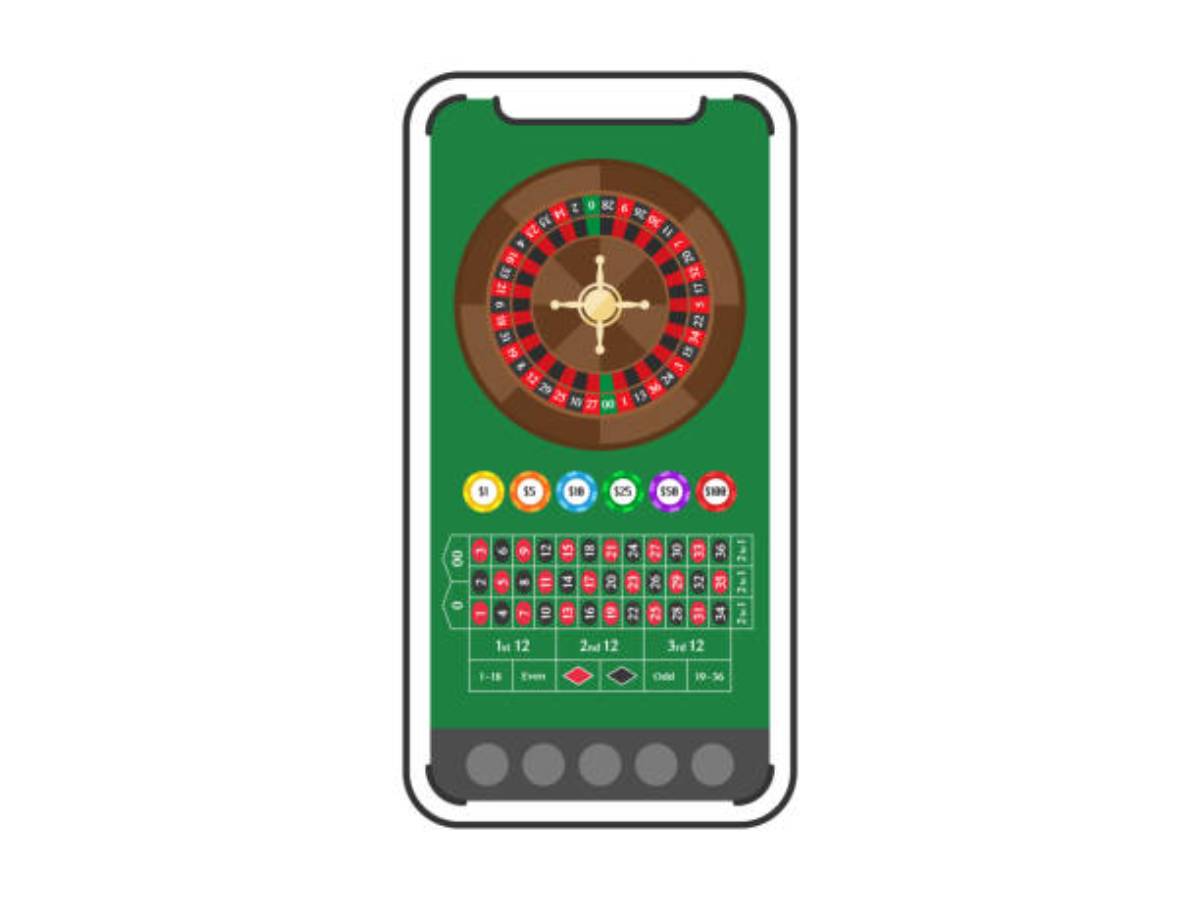
***The New Jersey Challenge
By Samantha Lee · 01 Oct 2025
The history of sports betting in the United States has been shaped not only by casinos and players but also by lawmakers and courts. For decades, strict federal laws restricted sports gambling to just a handful of states. That all changed in 2018, when the U.S. Supreme Court issued a landmark ruling that transformed betting laws and reshaped the gaming industry forever.
The Legal Landscape Before 2018Prior to the Supreme Court’s decision, the Professional and Amateur Sports Protection Act (PASPA) of 1992 prohibited states from legalizing sports betting. Only Nevada, with its long-standing gaming industry, was allowed full-scale sports wagering. Other states such as Delaware, Montana, and Oregon had limited exemptions, but for the rest of the country, legal sports betting was off-limits.
The New Jersey ChallengeThe turning point came when New Jersey challenged PASPA, arguing that the law was unconstitutional because it unfairly gave some states the right to offer sports betting while restricting others. Led by then-Governor Chris Christie, New Jersey fought a long legal battle that captured national attention. The case, known as *Murphy v. NCAA*, eventually reached the U.S. Supreme Court.
In May 2018, the Supreme Court struck down PASPA in a 6-3 decision. The ruling declared that the federal government could not prevent states from legalizing sports betting within their borders. This landmark judgment gave states the authority to decide for themselves whether to regulate and allow betting, opening the door to a new era in American gambling history.
The Supreme Court’s decision sparked a wave of legislative activity. Within months, states such as New Jersey, Delaware, and Mississippi legalized sports betting, and many others soon followed. Today, more than 30 states have regulated sports betting markets, with new states considering legislation each year. The ruling created new opportunities for state governments to generate tax revenue and for casinos to expand their offerings.
The Rise of Online and Mobile BettingOne of the most significant outcomes of the ruling was the explosion of online and mobile sports betting platforms. Companies like DraftKings, FanDuel, and BetMGM quickly capitalized on the new legal landscape, offering apps that allowed players to bet from anywhere within state lines. The convenience of mobile betting has made sports wagering more popular than ever, contributing billions of dollars to the U.S. economy.
The Sports Industry’s ShiftInitially, professional sports leagues such as the NFL, NBA, and NCAA opposed legalized betting, fearing it would compromise the integrity of the games. However, after the Supreme Court ruling, attitudes shifted. Today, major leagues actively partner with sportsbooks, integrating betting odds into broadcasts and allowing sponsorship deals. What was once seen as a threat is now considered a lucrative partnership.
Challenges and ConcernsDespite its success, the new era of sports betting has not been without concerns. Critics worry about problem gambling, underage betting, and the potential for match-fixing. States and operators have responded by implementing responsible gambling measures, age verification systems, and strict monitoring to protect both players and the integrity of sports.
Economic ImpactThe legalization of sports betting has generated billions in revenue for states, casinos, and online operators. Tax dollars from betting are being used to fund public services, infrastructure projects, and education programs. At the same time, the industry has created thousands of jobs across technology, hospitality, and sports entertainment sectors, making it one of the fastest-growing segments of the U.S. economy.
The Supreme Court’s decision in 2018 fundamentally changed betting laws in America, shifting control from the federal government to the states. What began as a legal battle in New Jersey sparked a nationwide transformation, leading to widespread legalization, economic growth, and a new relationship between sports and gambling. As the industry continues to evolve, the ruling remains a landmark moment in U.S. history—one that forever changed how Americans bet on sports.
Subscribe to our newsletter to get our newest articles instantly!

Senior Contributor
Samantha Lee is passionate about impactful storytelling. With a unique voice and deep insights, they turn everyday stories into compelling reads that resonate and inform.
Read Full Bio
Online casinos have grown tremendously over the last decade, providing players around the world with opportunities to win life-changing jackpots from the comfort of their homes. The allure of massive payouts combined with the excitement of spinning wheels or hitting a winning combination has made online gambling immensely popular. In this article, we explore some of the biggest online casino jackpots ever won, how they were achieved, and the impact these wins have had on players and the industry as a whole.***Record-Breaking Online Roulette WinsWhile slot games often dominate headlines for huge jackpots, roulette has also contributed to some remarkable online wins. Players who combine luck with strategic betting have sometimes turned modest stakes into massive payouts. For example, there have been documented cases of players hitting a rare combination in American roulette on high-stakes tables and walking away with sums exceeding several hundred thousand dollars. These instances are rare, but they highlight the potential for life-changing moments in online roulette.***The Role of Progressive JackpotsProgressive jackpots are one of the most exciting aspects of online casinos. These jackpots grow incrementally with each bet placed by players across multiple platforms until someone hits the winning combination. This system has produced some of the largest online payouts in history. A famous example includes a player winning over $20 million on a progressive slot game, demonstrating the immense possibilities that exist in digital gambling. The thrill of chasing a progressively growing jackpot adds a new layer of excitement and strategy to online play.***Strategies That Lead to Big WinsWhile luck is the primary factor in winning a massive jackpot, some strategies can improve overall chances or at least help manage risk. Skilled roulette players often combine inside and outside bets, manage their bankroll carefully, and select games with lower house edges, such as European roulette. For slots or other jackpot-based games, players may choose higher RTP (Return to Player) games and consider betting patterns that maximize eligible jackpot entries. The key is balancing risk, excitement, and responsible gambling practices.***Impact on the PlayersWinning a huge online jackpot can dramatically change a player’s life. Stories of winners paying off debts, buying homes, or pursuing lifelong dreams are common in gambling communities. However, sudden wealth also brings challenges, including managing finances, handling public attention, and maintaining responsible gaming habits. Many winners seek financial advice and set limits to ensure that the excitement of their win does not lead to future problems.***Impact on the Online Casino IndustryThese record-breaking wins have also had a profound effect on online casinos themselves. Big jackpots attract new players, increase platform credibility, and generate significant publicity. Casinos often promote their large jackpot winners to showcase the potential rewards, which encourages engagement and adds a sense of realism and trust to their platforms. Progressive jackpots, in particular, are now a staple feature, helping online casinos maintain high levels of excitement and competition.***Tips for Playing Responsibly While Chasing JackpotsSet a Budget: Always know how much you are willing to spend and stick to it.Understand Odds: Recognize that jackpots are extremely rare and plan your play accordingly.Use Free Play: Practice strategies in demo modes to get familiar with games before betting real money.Take Breaks: Avoid long gambling sessions that can lead to fatigue and poor decision-making.Stay Mindful: Focus on entertainment value rather than expecting to win big every time.***ConclusionThe biggest online casino jackpots are not just a testament to luck but also to the innovation and excitement that digital gambling offers. From record-breaking roulette spins to life-changing progressive slots, these wins have captivated players worldwide. While the chance of winning enormous sums is rare, understanding strategies, playing responsibly, and appreciating the thrill of the game ensures that online gambling remains fun and rewarding. The stories of these jackpot winners inspire countless others to spin the wheel with excitement, hope, and a sense of adventure.
By Christopher David Wilson · 09 Oct 2025

The legalization of online gambling in the United States has been a complex and evolving process, and roulette sits at the heart of this transformation. Once associated solely with glamorous casino floors in Las Vegas or Atlantic City, roulette has made its way into the digital world, where millions of Americans now access it through licensed online casinos. But is online roulette actually legal in the United States? The answer depends on where you live. Gambling laws are determined at the state level, creating a patchwork of regulations that range from fully legal and regulated to completely prohibited. This article explores the legal status of online roulette in the U.S., breaking it down state by state while highlighting the broader regulatory trends shaping the industry.***The Federal vs. State DynamicAt the federal level, online gambling has historically been restricted by laws such as the Unlawful Internet Gambling Enforcement Act (UIGEA) of 2006, which limited financial institutions from processing online gambling transactions. However, this law did not outright ban online gambling—it simply left enforcement to the states. The U.S. Supreme Court’s landmark 2018 decision to strike down the Professional and Amateur Sports Protection Act (PASPA) further empowered states to make their own choices about online gambling, paving the way for online roulette to grow in legal markets.***States Where Online Roulette is LegalCurrently, only a handful of states have legalized and regulated online casino gaming, including roulette. These states are the leaders of the digital gambling movement, offering safe, secure, and licensed platforms for players.***New JerseyNew Jersey has been the pioneer of online gambling in the United States since 2013. The state’s Division of Gaming Enforcement (DGE) oversees all online casino operations, and players can access a wide variety of roulette games, including both American and European versions. New Jersey’s robust legal framework has made it a model for other states considering online gambling legislation.***PennsylvaniaPennsylvania followed New Jersey’s example by legalizing online casinos in 2017. Since then, the Pennsylvania Gaming Control Board has licensed multiple operators, and roulette has become one of the most popular games in the state. The strong tax revenues generated from online roulette and other casino games have demonstrated the economic potential of legalization.***MichiganMichigan legalized online gambling in 2019 and officially launched its online casinos in 2021. Roulette quickly became a favorite among players, especially in its live dealer form. The Michigan Gaming Control Board regulates operators and enforces strict guidelines to ensure fairness and security.***DelawareDelaware was actually the first state to legalize online gambling back in 2012. The state’s small population means its market is limited, but online roulette is available through state-operated platforms. Delaware continues to collaborate with other states to expand its online gaming presence.***ConnecticutConnecticut joined the online gambling market in 2021, allowing licensed tribal casinos to operate digital platforms. Roulette is widely available to residents, and the state has quickly seen strong participation rates. This demonstrates how even smaller states can successfully integrate online roulette into their gaming economy.***West VirginiaWest Virginia legalized online casinos in 2019, and roulette has been a part of the state’s offerings since launch. With a regulatory framework similar to New Jersey and Pennsylvania, the state provides players with a safe and fair gaming environment.***States Considering LegalizationSeveral states are currently debating whether to legalize online casinos, including roulette. These include New York, Illinois, and Indiana. Each state recognizes the potential tax revenue and consumer demand but faces political challenges and debates over problem gambling. Should these states move forward, the availability of online roulette in the United States could grow significantly in the coming years.***States Where Online Roulette is Not LegalIn most of the country, online roulette remains either unregulated or outright prohibited. States like California, Texas, Florida, and Georgia do not currently allow online casinos. However, residents often find ways to access offshore platforms, which operate in a legal gray area. While these sites may offer roulette games, they do not provide the same protections as licensed U.S. operators, creating risks for players.***Tribal Casinos and Online RouletteIn several states, tribal casinos play a major role in gambling. Some tribal operators have begun exploring online roulette under compacts with state governments. This model is particularly important in states like Connecticut and Michigan, where tribal gaming entities are central to the industry’s growth.***Responsible Gambling RegulationsIn states where online roulette is legal, regulators emphasize responsible gambling measures. Licensed platforms are required to offer deposit limits, time restrictions, and self-exclusion options. These protections reflect the broader trend in the U.S. toward ensuring that the rise of online roulette does not come at the expense of public health.***Economic Impact of Legal Online RouletteThe legalization of online roulette has already proven economically beneficial for states that have embraced it. New Jersey and Pennsylvania, for example, generate hundreds of millions in annual tax revenue from online casinos. This revenue supports public services such as education and infrastructure, creating an incentive for more states to legalize online gambling. The jobs created in tech, customer service, and regulatory compliance add further economic benefits.***Future OutlookThe future of online roulette in the United States is promising. As more states witness the success of pioneers like New Jersey and Michigan, the momentum for legalization will continue to build. The growth of mobile technology, live dealer innovations, and even virtual reality roulette tables will further drive demand. Over time, it is likely that a majority of states will regulate online roulette, creating a safer and more accessible gaming environment for millions of Americans.***ConclusionSo, is online roulette legal in the United States? The answer is both yes and no. It is fully legal and regulated in a handful of states, while in most others it remains unavailable or exists in a gray area. However, the trend is clear: the future of online roulette in the U.S. points toward greater legalization, broader access, and continued innovation. For now, American players must navigate this patchwork system, but the wheel is spinning toward nationwide acceptance of this iconic game in the digital era.
By Rahul Sharma · 02 Oct 2025

In the past two decades, the gambling landscape in the United States has undergone a transformation unlike anything seen before. Once confined to neon-lit casino floors in Las Vegas or Atlantic City, games of chance such as roulette have now moved into the digital age. Among the many games that found their way online, roulette has managed to secure a special place in the hearts of American gamblers. Known for its iconic spinning wheel and the suspense that builds as the ball makes its final jump, roulette embodies the essence of chance, risk, and entertainment. The rise of online roulette in the USA represents not just a change in gambling platforms but a broader cultural shift in how Americans interact with games of chance, technology, and regulation. This article explores the journey of roulette from casino floors to digital screens, the technological innovations that fuel its popularity, the laws that shape its growth, and the social and cultural factors that continue to drive its expansion.***From Casino Floors to Digital ScreensRoulette first entered American culture through the glamorous casinos of New Orleans in the 19th century before finding a permanent home in Las Vegas and Atlantic City. For decades, the roulette table symbolized luxury, exclusivity, and excitement. But as the internet began to dominate entertainment in the late 1990s and early 2000s, gambling operators recognized the opportunity to bring their most beloved games online. Early versions of online roulette were simplistic, offering digital wheels and limited features. Yet even these primitive platforms caught the imagination of players who no longer needed to travel thousands of miles to place a bet on red or black.By the 2010s, technological improvements had taken online roulette to new heights. High-definition graphics, real-time animations, and mobile compatibility brought the game closer to the casino experience than ever before. This shift democratized roulette, making it available to people in states far from traditional casino hubs. The accessibility of the game on smartphones and tablets also allowed Americans to play roulette during commutes, at home, or even during social gatherings, fundamentally reshaping how the game fit into daily life.***The Allure of the Wheel: Why Americans Love Online RouletteRoulette’s enduring popularity lies in its perfect balance between simplicity and suspense. Unlike poker, which demands complex strategies, or blackjack, which requires mathematical precision, roulette is universally approachable. At its core, it involves making a choice—red or black, odd or even, single numbers or groups—and letting fate decide. This ease of understanding makes it appealing to casual players, while the variety of betting options keeps experienced gamblers engaged.In its online form, roulette offers Americans added layers of attraction. Digital platforms frequently provide bonuses and promotions—free spins, matched deposits, loyalty rewards—that make the experience feel more rewarding than a traditional casino visit. Furthermore, online roulette tables often allow for lower minimum bets than physical casinos, making it more inclusive for players who might not be ready to risk large sums. The accessibility and affordability of online roulette align perfectly with American gambling culture, where entertainment often blends with the dream of hitting big.***Technological Innovations Behind Online RouletteTechnology has been the engine behind online roulette’s explosion in the U.S. market. Software developers have worked tirelessly to replicate not just the look of the roulette wheel but the feel of a casino environment. Random Number Generator (RNG) technology ensures fairness and unpredictability, while advanced algorithms simulate the mechanics of a spinning wheel and bouncing ball.Perhaps the biggest breakthrough has been live dealer roulette. Using high-definition cameras and professional dealers broadcasting in real time, live roulette brings the authenticity of a casino floor to players’ screens. Chat functions allow gamblers to interact with dealers and fellow players, recreating the social atmosphere that makes roulette so engaging.Looking ahead, innovations in Virtual Reality (VR) and Augmented Reality (AR) promise to revolutionize the experience further. Imagine donning a VR headset and finding yourself standing at a roulette table in a digital recreation of the Bellagio in Las Vegas. These immersive technologies are already being tested and could soon redefine what Americans expect from online gambling platforms.***Legal Landscape and Regulation in the USAThe rise of online roulette cannot be understood without examining the complex legal framework that governs gambling in the United States. For much of the 20th century, online gambling existed in a legal gray area, with strict federal laws limiting its expansion. However, in 2018, the Supreme Court struck down the Professional and Amateur Sports Protection Act (PASPA), a decision that opened the door for states to legalize online gambling on their own terms.States like New Jersey, Pennsylvania, Michigan, and Delaware quickly embraced the opportunity, launching licensed online casinos that included roulette among their offerings. These platforms operate under strict regulatory oversight, ensuring fairness, transparency, and protections for consumers. Regulations require casinos to implement responsible gambling tools, such as self-exclusion options and spending limits, helping to address concerns about problem gambling.While progress has been made, the expansion of online roulette remains uneven. States such as Nevada, ironically the gambling capital of the world, have limited online casino options, focusing instead on sports betting. Other states, including California and Texas, continue to debate legalization. As more states witness the tax revenue generated by legalized online gambling, it is expected that the availability of online roulette will expand nationwide.***Cultural Impact and Pop Culture PresenceRoulette has always carried a certain cultural mystique. Hollywood movies from the mid-20th century often featured roulette scenes, portraying the game as the epitome of sophistication and risk-taking. These portrayals left a lasting imprint on American culture, making roulette synonymous with glamour and high stakes.Online roulette has extended this cultural footprint into the digital age. Social media influencers and streaming platforms such as Twitch now showcase live roulette sessions, blending gambling with entertainment content. This exposure has brought roulette to younger audiences who may never have stepped inside a physical casino. The crossover between gambling, entertainment, and digital content reflects the broader cultural shift toward online experiences.***Roulette as a Social Experience in the Digital EraOne of the key factors in roulette’s enduring appeal is its social nature. In physical casinos, crowds gather around roulette tables, sharing the suspense of the spinning ball. Online roulette has successfully replicated this experience through live chat features, multiplayer modes, and community-based tournaments.For many American players, roulette is less about individual winnings and more about the shared anticipation that comes with every spin. Digital platforms understand this and continue to design features that foster interaction, making online roulette not just a solitary pastime but a communal event. This reflects broader trends in American digital culture, where people seek connection and shared experiences even in virtual spaces.***The Economics of Online Roulette in the USAThe economic impact of online roulette in the United States is substantial. Licensed online casinos generate millions in revenue each year, with roulette often ranking among the top table games in popularity. For states like New Jersey and Pennsylvania, online gambling taxes have provided crucial revenue streams, funding everything from education to infrastructure projects.For players, the economics of online roulette are also attractive. Lower betting minimums, frequent bonuses, and loyalty programs mean that players often feel they are getting more value for their money compared to traditional casinos. However, the profitability of roulette for operators is undeniable, especially when considering the higher house edge of American Roulette with its double zero compared to European Roulette. This balance between player satisfaction and operator profit ensures roulette’s place as a cornerstone of the online gambling ecosystem.***Challenges and ConcernsDespite its many positives, the rise of online roulette in the USA has not been without challenges. Concerns about problem gambling, underage access, and financial risks remain significant. Regulators and operators have responded with tools such as mandatory identity verification, deposit limits, and educational campaigns about responsible gambling. Still, critics argue that the accessibility of online gambling makes it harder to control addictive behaviors compared to land-based casinos.Another challenge lies in cybersecurity. Online casinos are attractive targets for hackers, and protecting players’ financial and personal information is paramount. Leading operators invest heavily in encryption, fraud detection, and secure payment methods, but the threat remains an ongoing concern.***Future of Online Roulette in the USAThe future of online roulette in the United States appears bright, fueled by technological innovation, regulatory evolution, and cultural acceptance. As more states legalize online casinos, access to roulette will expand, bringing the game to millions of new players. Virtual reality and artificial intelligence could enhance personalization, tailoring roulette experiences to individual player preferences.In addition, the growing popularity of cryptocurrency and blockchain technology could further transform online roulette. Some platforms already accept Bitcoin and other digital currencies, offering faster, more secure transactions. Blockchain technology also promises greater transparency, potentially increasing trust among skeptical players.***ConclusionThe rise of online roulette in the USA is a story of tradition meeting technology. From its origins on the glamorous casino floors of Las Vegas to its current presence on digital screens across the nation, roulette has adapted and thrived in every era. Its simplicity, suspense, and cultural allure make it timeless, while innovations in technology and regulation continue to propel it into the future.As America continues its digital transformation, online roulette will remain not just a game of chance but a symbol of the country’s evolving relationship with entertainment, risk, and technology. For millions of Americans, the thrill of watching the wheel spin—whether in a casino or on a smartphone—will continue to define the essence of gambling in the digital age.
By Anita Singh · 01 Oct 2025

With mobile gaming on the rise, 2025 is shaping up to be a great year for American Roulette enthusiasts. Several apps now offer immersive gameplay, live dealer features, and user-friendly interfaces, making roulette accessible anytime, anywhere.***Top Mobile Apps for RouletteA variety of mobile apps cater to both casual players and high rollers. The best apps combine smooth graphics, realistic table layouts, and reliable gameplay.Notable Apps Include:Roulette Royale: Known for its intuitive interface, live dealer options, and customizable tables.SpinPalace Casino App: Offers high-quality graphics and frequent promotions for roulette players.BetMGM Mobile: Features a variety of roulette variants, including American and European, along with tournaments and rewards.888 Casino App: Trusted platform with secure payments, smooth mobile experience, and multiple betting options.***Features to Look for in 2025When choosing a mobile roulette app, players should focus on usability, security, and additional features that enhance gameplay.Key Features:Live Dealer Integration: Play with real dealers in real time.Secure Transactions: Ensure safe deposits and withdrawals.Bonuses and Promotions: App-specific offers increase value.Cross-Platform Support: Seamless play across smartphones and tablets.***Benefits of Using Mobile Roulette AppsMobile apps allow players to enjoy roulette without visiting a physical casino. They offer flexibility, convenience, and a variety of game options that appeal to different skill levels.Advantages Include:Play Anywhere: Spin the wheel on-the-go, anytime.Realistic Experience: High-quality graphics and animations mimic live tables.Enhanced Engagement: Leaderboards, tournaments, and social features keep players involved.***Tips for Choosing the Right AppSelecting the best app requires evaluating reputation, user experience, and available features. Always choose licensed platforms to ensure fairness and security.Tips:Check Reviews: Read feedback from other players.Verify Licensing: Ensure the app operates under a legal gambling license.Test Free Versions: Try demo modes before wagering real money.Compare Bonuses: Select apps offering the best rewards and promotions.***ConclusionThe best mobile apps for American Roulette in 2025 combine convenience, technology, and engaging gameplay. Players can enjoy authentic roulette experiences from their smartphones while taking advantage of modern features, tournaments, and secure platforms.
By Stefen · 25 Sep 2025